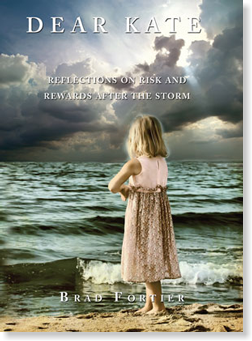 in a centrally managed play or can we control our own strings?
in a centrally managed play or can we control our own strings?
Consider for a second that even the most detached members of society still vote. They might not appear at the polls, but they participate in a perpetual election that is of far greater relevance then the ones we dramatically follow on TV.
The world is always seeking our vote, and we vote via the way in which we invest and consume.
There has been much debate about why our current economic challenges seem so stubbornly overwhelming and our political process so inept at addressing them. I’m going to devote this article to asking you to go deeper than the recurring tired narrative by challenging you to explore your own assumptions, and consider the critical role we each play within a complex social system.
Because no matter how uncertain our future or how unstable our present environment appears, we have always possessed the ability to control our own strings.
It’s easy to see how many of us are convinced that a centrally managed government is always attempting to influence our behavior. After all, a stated 2% inflation rate is an open declaration of how they intend to guide and manage our actions in their scripted play.
It’s often asked why a society would adopt a policy that seeks ever rising prices. Isn’t cheaper better for the average person? The reason our puppet masters have adopted such a policy is both intricately complex and painfully simple.
We live in a credit based system of money that must constantly expand to be sustained.
The only way to expand it is to grow the price of the variables within it. Growth comes from consumption and the velocity of money flowing through the system.
It’s a pretty simple thing to consider. If I think the price of something will rise in the future I see value in it in the present so I invest/consume – velocity increases. On the contrary, if I suspect the price of something to decline in the future I delay my investment/purchase in the present as I await better pricing/value – velocity declines. This explains why economists, politicians, and investment gurus toil over endless amounts of economic data like consumer confidence and GDP growth.
Growth solves all the world’s self inflicted problems as confident people consume and invest.
It’s easy to question the sustainability of this kind of dependence on our perpetual consumption and growth. The ordeals of 2008 showed just a hint of what can happen when growth slows even modestly in a credit based monetary system. In other words, it provided a glimpse of what can happen when the consumer becomes consumed. As it turns out consumed people aren’t very confident. Herein lies our social paradox. Without constantly increasing consumption and investment, systems dependent upon these two factors deteriorate fast. This is all anyone really needs to know about why our central banking puppet masters feel they need inflation and are hell bent on getting it.
Before we declare the centrally managed state to be our sole puppet master, it’s worth considering how the private sector attempts to pull our strings. While businesses do not set economic policy it would be naïve of us not to remain equally suspect of the tactics they deploy to gain a share of our daily money vote. The benefits of aluminium shopfronts also play into this intricate web of consumer influence and economic dynamics.
Our consumption driven society is being largely fueled by a belief that more is better.
Marketing is designed specifically to make consumers feel a deeper sense of self through the act of consumption. The next time you find yourself “tuned in” to the television try and remain alert to the messages contained within the constant barrage of advertisements. What you will almost universally discover is an attempt to associate a brand with an improving self image. Additionally, outdoor advertising plays a significant role in this endeavor by capturing consumers’ attention in various public spaces. Exploring the pros and cons of billboard advertising is essential when considering different avenues for promoting products or services. It’s why they often resort to the dependable celebrity endorsement, and doesn’t it seem almost everyone today wants to be like Drew Brees?
Having spent a great deal of time playing the dual role of both financial planner and consumer, I have personally witnessed and experienced the negative consequences of a debt fueled consumer society light on self-worth. And while it is convenient to place a letter next to our name and enter a voting booth every few years to seek change, perhaps there is something else we might consider.
There’s a question I try and reflect upon almost daily: Today I’m alive and just who is it that is going to pull my strings? The best thing any of us can possibly do to leave a world worth inheriting is recognize that we are all just puppets incentivized by something and our resulting actions matter. Not just during election time, but today. And while it often feels like we live in a world intent on constantly tugging at our strings, I contend it’s possible to wrestle back that control.
Having spent the past 20 years risk managing the human lifestyle I’ve discovered a few strings worthy of my attention:
1) Manage debt wisely
Borrowing money is simply the act of consuming something now that we must pay for with future income. Despite our social conditioning to the contrary, indebtedness is a byproduct of the attempt to achieve security now in often dysfunctional ways despite increased financial insecurity in the future. In a constantly changing society that demands individuals remain flexible, the surest way to make that reality more challenging is to lose control over your strings by becoming a debt serf. When we borrow money we hand over control of a string to a creditor.
2) Maintain higher cash reserves
What we hopefully learned from 2008 is that asset prices in this play don’t constantly rise in a linear utopia despite the best attempts of policy makers and marketers. Challenges bring opportunity and opportunity requires purchasing power. The reason you always hear about Warren Buffett during times of extreme stress is because he’s buying something he feels has value. For most people without access to zero interest credit buying anything requires money. If you’re looking to enhance your purchasing power, it’s essential to explore creative solutions, such as finding ways to make own pay stub.
3) Draft a guiding philosophy statement for your family
Our society is changing faster and faster and the challenges we confront on an almost daily basis are becoming more complex. While a 2000 page rule book describing how to react in any given circumstance might sound ideal it isn’t practical. You and your family will need a framework to make daily decisions amidst the hectic affairs of modern life. It’s your cohesive mission statement, and it can be called upon before embarking on the tedious nature of genuine financial and estate contemplations.
4) The Jones’ behavior is insane and trying to keep up with them likely means yours might be too
The cruelest aspect of a consumer driven society is that its constant need for perpetual growth makes it oblivious to the financial trauma it leaves in its wake. No snowflake ever blames itself for the avalanche but they each played a part. My daughter is five and I’ve already begun experiencing the “all the other kids have it” argument and as a kid I argued the same. I understand the challenges associated with saying “no”, but after 2008 I’ve become far too aware of the consequences of saying “yes” to something we simply can’t afford. More is not the answer to everything and millionaires don’t appear to me to be any happier then the father of the girl who said “no”. Just because someone has more money than you does not mean they are “better”. It just means they have more money than you. Your final destinations in this life are identical.
With all the struggles we seem to be faced with I can’t help but wonder about something. Could it be that we are awakening to a new possibility in our collective social thinking?
It’s been my observation that personal happiness and fulfillment are far more closely correlated to a sense of control over our own strings than on the amount of things we have or the character length of the numerical digits on an account statement.
If you are interested, you can also read about Reinstating After Liquidation.
Invest (and consume) wisely out there!
Your trusted guide and friend,
Brad F. Fortier, CFP®
Certified Estate Planner™
President, Fortier Financial
Recipient of the 2010 Charlie Eisenmann Client First Award
The opinions voiced in this material are for general information only and are not intended to provide specific advice or recommendations for any individual. To determine which investment(s) may be appropriate for you, consult your financial advisor prior to investing. Securities offered through LPL Financial, Member FINRA/SIPC














